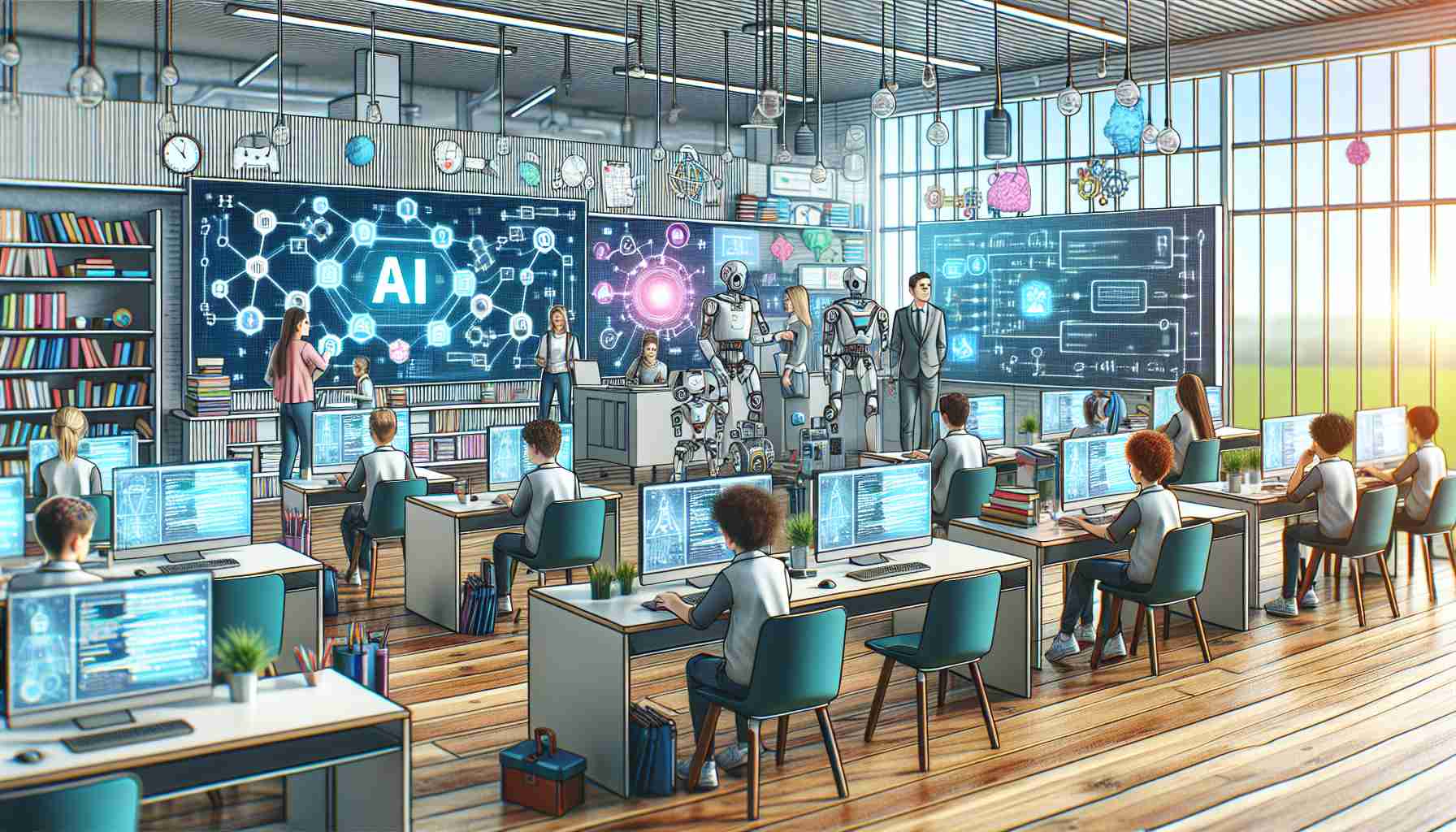Hermann-Hesse Comprehensive School in Obertshausen has become a beacon of educational innovation as it integrates Artificial Intelligence (AI) into its curriculum. As a “Digital School,” it champions technological advances, starting with eighth graders and potentially younger students.
Amidst a digital transformation, the faculty, initially skeptical about AI’s impact on learning, has found reassurance. Teachers have been undergoing training on the judicious use of AI in classrooms, discussing milestones and experimenting with AI-driven platforms like Fobizz—a Hamburg-based developer providing resources suitable across various subjects.
Revolutionizing Traditional Education with AI is now more than a possibility, as more than 5,000 German schools employ Fobizz’s services, extensively for language and German lessons. Here, AI assists in essay writing and offers constructive feedback, understanding of literary devices, and much more.
The Hessian Ministry of Education is proactive, issuing comprehensive guidelines on AI application. It envisions AI as a support for diverse functions like language processing, knowledge management, and personalized learning, potentially empowering students, including those with language barriers.
The school has already seen success with Microsoft’s “Copilot,” and students, even from the fifth grade, are engaging with AI for various tasks. Sven Köhler, a teacher and member of the school’s leadership, recognizes AI’s potential in structuring lessons, formulating tests, and administrative duties, thus easing teachers’ workload while engaging students creatively.
Equal Opportunity in the AI Era is a goal at the Hermann-Hesse School. With professional AI variants like ChatGPT-4 bearing a cost, the school aims to provide equal access to advanced tools for all students, thereby preventing a knowledge gap and ensuring all students are equipped for a future where AI is ubiquitous in industry and society.
As the Hermann-Hesse Comprehensive School in Obertshausen adopts AI tools like Fobizz and Microsoft’s Copilot into its curriculum, the educational community worldwide is keeping a close eye on such initiatives that aim to integrate AI seamlessly into learning environments. Here are some relevant facts, questions, challenges, controversies, advantages, and disadvantages tied to the topic of advancing AI education.
Additional Facts:
– AI in education can facilitate personalized learning paths for students, potentially improving engagement and outcomes.
– There is a global trend toward digital literacy becoming a fundamental aspect of education, with certain governments including coding and AI basics in their national curricula.
– AI-driven analytics can help educators track student progress meticulously, identifying areas where students may need additional support.
Key Questions and Answers:
– Q: How is AI used for personalized learning in schools like Hermann-Hesse?
A: AI can analyze individual student performance and learning styles to tailor educational content and recommend appropriate resources or activities.
– Q: Can AI replace teachers in the classroom?
A: While AI can complement the work of teachers by taking on administrative tasks and offering support in grading or personalized tutoring, the role of human educators in fostering critical thinking, creativity, and social skills remains irreplaceable.
Key Challenges or Controversies:
– Data Privacy: Integrating AI into schools raises concerns about the collection and handling of student data.
– Educational Equity: There is a potential risk that unequal access to advanced AI tools could widen the existing educational gap.
– Job Displacement: There is a fear that increased AI use in education could eventually lead to reduced need for human teachers, although this is a highly debated issue, with many experts stressing AI as a tool for enhancement, not replacement.
Advantages:
– It provides support for students with learning disabilities or language barriers.
– AI can reduce the administrative burden on teachers, allowing them to focus more on teaching and student interaction.
– Enables a more personalized education where students can progress at their own pace.
Disadvantages:
– Initial costs for implementing AI technology can be high.
– There is a potential risk of over-reliance on technology, potentially compromising the development of critical thinking skills.
– Requires continuous digital infrastructure support and professional development for educators to keep pace with technology changes.
Suggested Related Links:
– For more on educational technology solutions, visit Microsoft’s official website.
– To learn about the global discussion on AI and education, check out UNESCO’s official website.
– For insights into AI ethics and guidelines, you may explore the European Commission’s website.
Please note that these links are to main domains where topics of AI in education could be further explored. Care has been taken to ensure the validity of the URLs.

